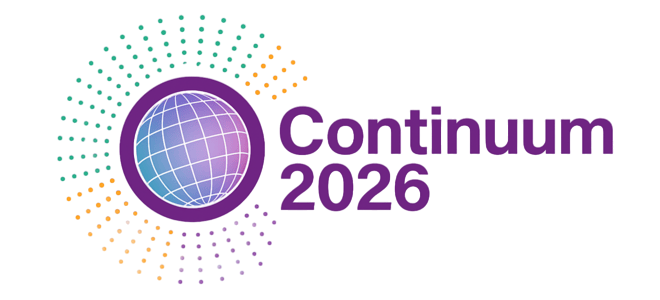DID YOU JUST LEARN THAT YOU HAVE HIV?
It can be very scary to learn that your HIV blood test came back positive, but it’s not a death sentence. If you receive an HIV diagnosis, it means that you have human immunodeficiency virus (HIV). Unlike some other viruses, the human body can’t get rid of HIV completely. Once you have HIV, you have it for life. But with proper medical care, HIV can be controlled. People with HIV who get effective HIV treatment can live long, healthy lives and protect their partners.
When you first find out that you have HIV, you’ll need to adjust to this change in your life. Family members or friends might be able to help you or you could talk with a counselor or social worker. Take your time and don’t feel that you have to tell everyone right away about your HIV status. Read more about telling others you have HIV. Then start taking the next steps:
TAKE TIME TO PROCESS THE NEWS
Receiving an HIV diagnosis can be life changing. You may feel many emotions—sadness, hopelessness, or anger. Allied healthcare providers and social service providers can help you work through the early stages of your diagnosis. They are often available at your healthcare provider’s office. Read more about what a positive test result means.
LEARN MORE ABOUT HIV
HIV is a virus that can multiply rapidly in your body. Without treatment, HIV can make your immune system very weak. If this happens, you might get an opportunistic infection (OI). Common germs cause these diseases. People with healthy immune systems can be exposed to these germs and not get sick, but the same germs can cause serious illnesses in people with weak immune systems.
The first medication for HIV was approved in 1987. Now there are many different drugs that can be used to treat HIV. HIV drugs are called antiretroviral medications (ARVs) and HIV treatment is called antiretroviral therapy (ART). Most people with HIV can now expect to live healthy lives for many years.
You probably have a lot of questions about HIV. There are many good sources of information including:
-
- Your local public health department
- Your HIV case manager or healthcare provider
- Centers for Disease Control and Prevention (CDC)
Be careful about the information you’re getting–check with your healthcare provider or other trusted source to make sure it’s accurate.
FIND HIV CARE
If you have a primary care provider (PCP), that person may have the knowledge to treat your HIV. A PCP is someone who manages your regular medical care and annual exams.
If your PCP does not have the knowledge or experience to treat HIV, they can refer you to an HIV healthcare provider. You can also find Ryan White HIV/AIDS Program providers who can help you access the medical care, medications, and essential support services you need.
Read more here about how to choose your HIV healthcare provider.
START HIV TREATMENT AS SOON AS POSSIBLE AFTER DIAGNOSIS
Current guidelines recommend ART for all people with HIV. Get in care as soon as possible and start taking ART daily as prescribed.
In addition to your regular medical exams, there are two special blood tests to keep track of HIV disease. These are the viral load test and the CD4 cell count.
The viral load test measures the amount of HIV in your blood. Lower levels are better. This test is used as a baseline measurement before you start ART, to see if treatment is working, and to know when/if to change medications. ART can make the viral load so low that a test can’t detect it (called viral suppression or undetectable viral load). Viral suppression is defined as having less than 200 copies of HIV per milliliter of blood.
Getting and keeping an undetectable viral load (or staying virally suppressed) is the best thing you can do to stay healthy. Having an undetectable viral load also helps prevent transmission to others. In fact, if you have an undetectable viral load, you have effectively no risk of transmitting HIV to an HIV-negative partner through sex. Most people can get the virus under control within 6 months.
The CD4 cell count shows how strong your immune system is. It counts how many infection-fighting white blood cells (WBCs) you have. These cells are also called T-4, T-cell or T-helper cells. If your CD4 cell count gets too low, you might develop an OI. This test is used to help decide when it’s time to start medicines to prevent OIs.
HIV may not be the only health issue you are dealing with. The better your health is overall, the better you can deal with HIV. Be sure to get regular medical and dental checkups and get treatment for conditions like diabetes, high blood pressure, or high cholesterol. If you can avoid smoking, drinking too much alcohol, recreational drug use, and sexually transmitted infections (STIs), you will probably find your HIV easier to control.
THE BOTTOM LINE
There are things you can do to stay healthier with HIV. You can learn more about HIV, get in care and start HIV treatment as soon as possible, and monitor your other health conditions regularly.
Remember, you are in charge of your own healthcare. You will decide which healthcare provider to work with and who else you want to consult about your treatments. You will decide which treatments you want to use and when you want to use them. Take your time and learn about your options.
MORE INFORMATION
Check here for HIV/AIDS information and services.
You can also search for information, materials, and organizations at the National Prevention Information Network.
Reviewed June 2025
Print PDF




